Table of Contents
Are you indecisive on whether to choose a new TV or monitor?
Monitor vs TV, what is the difference? Well, you are not alone. If you are an avid gamer, playing your favourite games on a 60 inch TV sitting in your living room seems like a dream come true! But do you expect the same results on a TV as you would get from a computer display?
Key Takeaways
- There are a lot of similarities and differences between a TV and a monitor, and the choice between the two mostly depends on what type of content you need it for.
- For those that want or need a very large monitor, beyond 32 inches, a TV may be the only option available. Conference rooms, offices, and other places may benefit from this larger display, especially if used as a secondary monitor.
- Monitors usually have lower input lag, higher refresh rates and faster response time than TVs, which make them a better choice for gaming.
Before you can decide which display is best for your needs, there are various factors to consider, including the resolution, size of the display screens, response time, features, etc.
But, before you proceed with the article, you may want to check out the Acer's top monitors. Also, Samsung monitors with superb image quality are worthy alternatives.
So, after considering various factors, which one should you go for and want to use?
Monitor vs TV - Which One Should I Choose for Gaming?
Nothing stops you from using a TV as your computer monitor or vice versa, though it may not be the best option. TVs usually have lower refresh rates compared to the very best gaming monitors.
To enjoy your pc gaming, there are features that you need on your display.
For instance, the monitor should have a high refresh rate and fast response time. With the best refresh rate for gaming, you get rid of all screen tearing as you enjoy a fluid transition even when playing a fast action game. Budget monitors may or may not be your pick of the bunch, but they are still worth checking out before you decide on more expensive ones.
Most monitors have higher refresh rates than TVs. A gaming monitor can have up to 360Hz while a TV will have up to 120Hz rate. However, a 120 Hz monitor will be much easier to find and you probably won't have to splash out as much as on the TV with the same refresh rate.

If it is the size of the display that matters, then a TV or HDTVs can make a better option as they are available in various sizes from small to large. Most gamers prefer large gaming monitors as they offer more screen real estate to display the content. Large gaming monitors also offer a wide range of viewing angles, ensuring you get image quality irrespective of your viewing position.
For console games, you need to sit closer to the screen. Therefore, you may not need a massive screen. So, a top-notch console gaming monitor is worth checking out. We already reviewed the best PS4 monitors out there, to boot. And, if you are tight with space, one of the curved gaming monitors from this post can come in handy.
In terms of the size of the whole screen, your choice between a gaming monitor or a TV or HDTVs (see our HD guide) depends on the game you want to play and your personal preferences.
Apart from the screen size, you also need to consider other factors such as the input lag. The lower the input lag, the smoother your gaming experience. PC gaming monitors are better for gaming as they have a lower input lag compared to modern TVs. If you opt for a TV for your gaming, ensure it has a game mode that helps minimize the input lag (see also VIZIO TV settings for gaming).
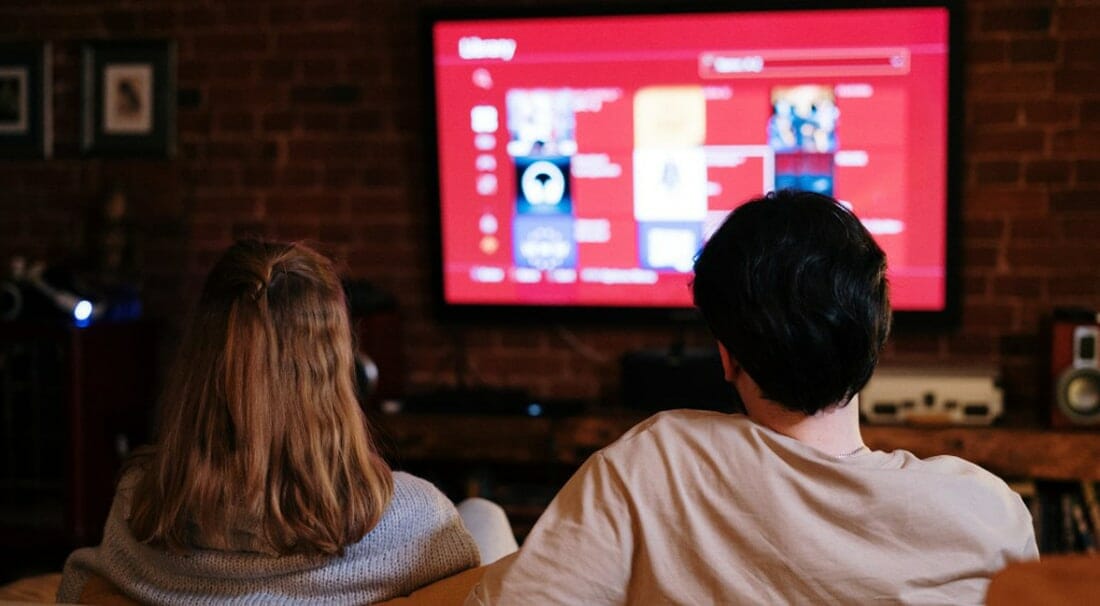
Is a TV the Same as a Computer Monitor?
You can watch TV shows, movies on computer monitors, and you can play your computer games on an HDTV. Monitors have HDMI ports and an HDMI cable, VGA, and the same for most TVs and HDTVs, but does that make them the same devices?
Many TVs have features that you may not find in a monitor, and monitors are usually smaller in size.
Computer displays and TVs can work together to offer a big screen for presentations and media, and they can also offer an extra screen for your computer.
So, what do you expect from either a TV or monitor screen?
Screen Resolution
Before you can settle on either a TV or monitor, you need to understand what you need.
Both computer displays and TV screens are support a variety of screen resolutions. TVs are available in Full HD and 4K UHD resolutions. Monitors come with an in-between option known as QHD with 2560 x 1440 pixels.
The common screen resolution for the monitor includes 1366 x 768 and 1920 x 1080 pixels. Both TVs and monitors support 8K displays with resolutions of 7680 x 4320 pixels.
The ratio of screen resolution and screen size is known as pixel density. Pixel density measures how many pixels per inch the display offers. A 1920 x 1080 pixel resolution is ideal for 32 inch TVs but not for a 32-inch computer monitor.
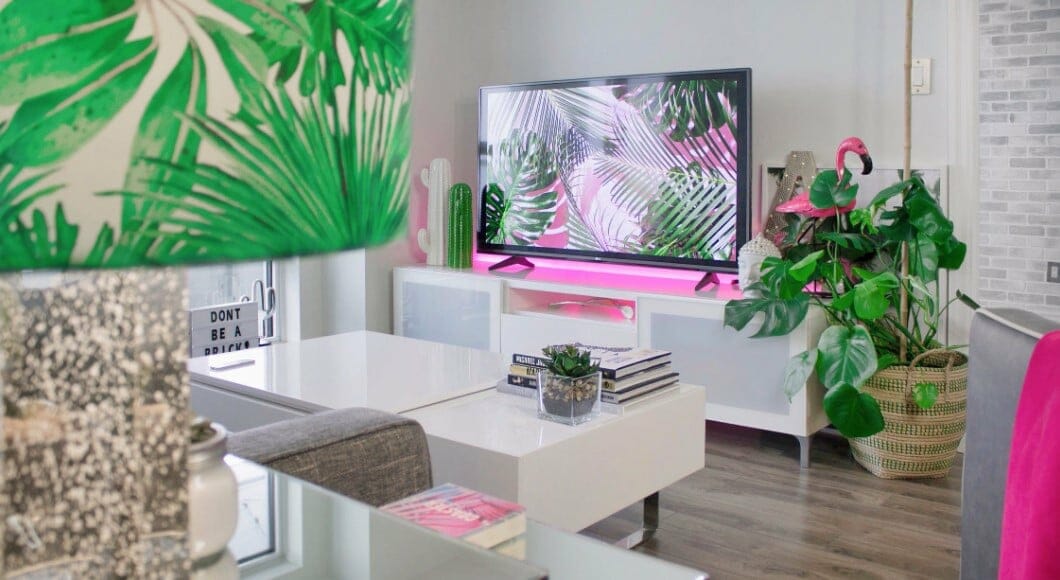
Low pixel density makes small items appear blurry when you look at the screen from a close range.
Computer monitors and TVs are available on various screens, including LED, LCD, and OLED. The latest screen types for monitors are QLED technology.
OLED and QLED displays light up each pixel on screen independently while LCD and LEd screens use a backlight to light up the screen at once.
Refresh Rate
Before you can choose between a monitor or a TV, you need to consider what you need in terms of refresh rate.
Gaming monitors can come with a refresh rate of up to 360Hz, ensuring you have the most fluid transition. Thus, you can enjoy even the fast-action games without the risk of screen tearing which enhances your gaming experiences.
On the other hand, TVs offer a refresh rate of 60Hz to 120Hz.
If you compare TVs and monitors in terms of refresh rate, monitors make a better choice for a gaming monitor.
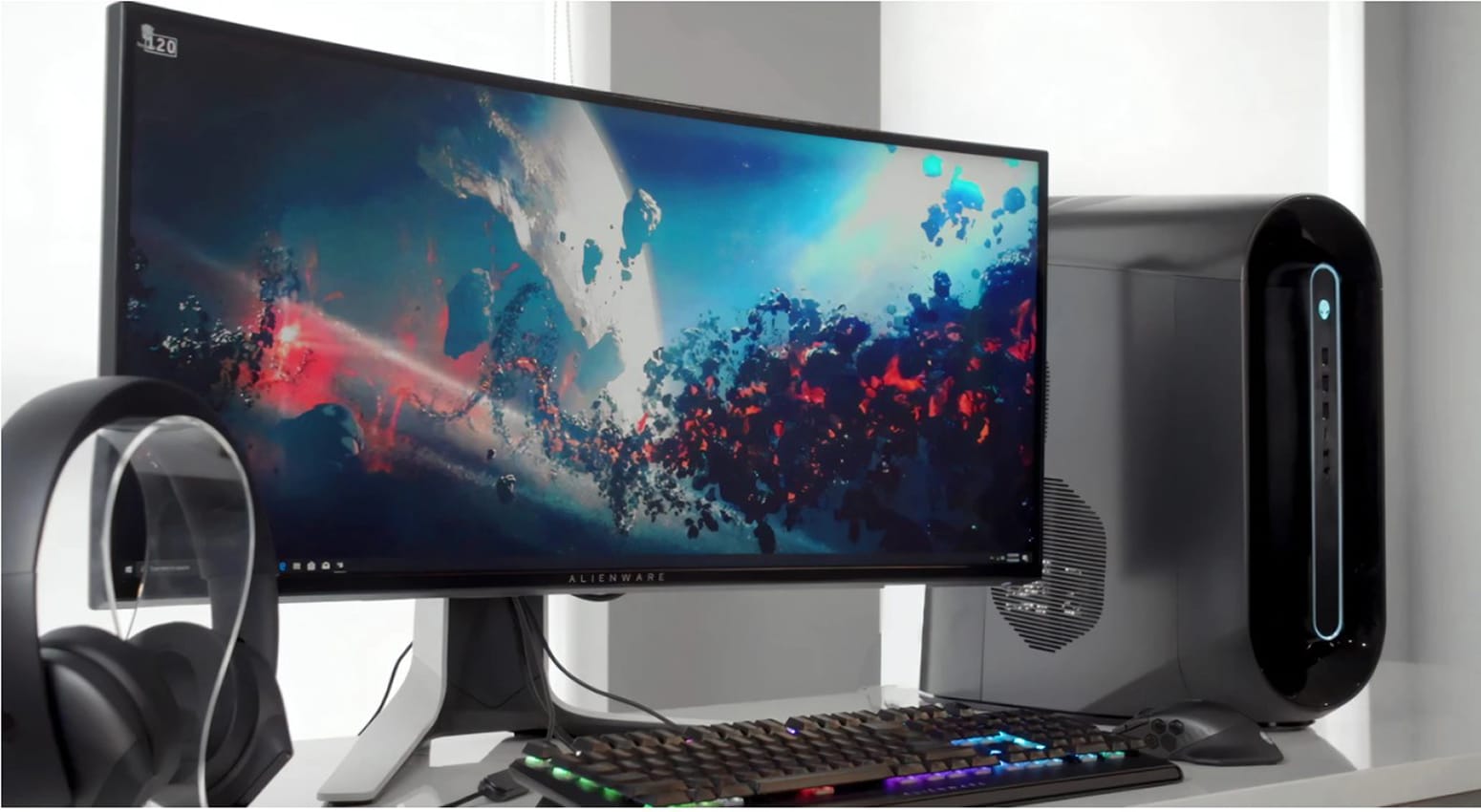
Input Lag
If you want to purchase a gaming monitor, you need to ensure it has almost zero input lag.
A TV will be a better choice for console games since you'll be sitting further from the screen. However, you need to make sure it has an image post-processing bypass mode, known as a game mode.
The game mode minimizes the input lag in a TV, enabling you to enjoy smooth and responsive gameplay.
To enjoy the best experience, a TV should have less than 16 ms per second and 8ms per second if it supports a 120Hz refresh rate.
Response Time
Response time speed is also a important factor to consider when choosing between a PC gaming monitor and a TV screen.
Monitor manufacturers put the response time specifications on the paper but not so for TVs (see LG). Therefore, you need to confirm the response time your preferred TV offers.
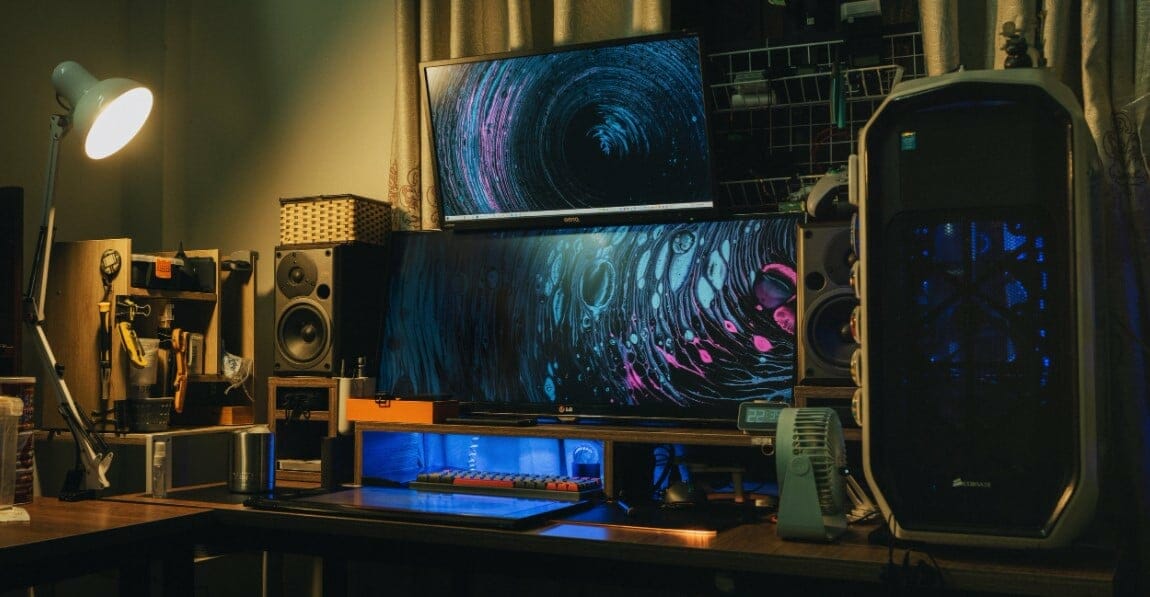
An average IPS panel computer display comes with a response time speed of about 5 ms. On the other hand, an IPS panel TV comes with about a 15ms response time.
Therefore, you will experience more ghosting, blurring, and trailing behind while watching fast-paced objects on an IPS panel TV.
If you want a TV for gaming, which one to chose in an IPS vs VA panel dilemma is a no-brainer as VA panels are slower. You should also consider a TV with a lower input lag. An OLED TV has a faster response time than LED backlight TVs.
Adaptive-Sync
Some gaming monitors offer variable refresh rate or an adaptive-sync feature such as AMD FreeSync and Nvidia G-SYNC.
The adaptive-sync technology also requires you to have a compatible graphics card, which offers you various refresh rates that help to get rid of all stuttering and screen tears.
If you play both console games and PC games, a gaming monitor with FreeSync technology and 120Hz and above refresh rates will be an excellent choice. But you can also get an OLED TV with variable refresh rate and FreeSync technology which makes them ideal gaming monitors.
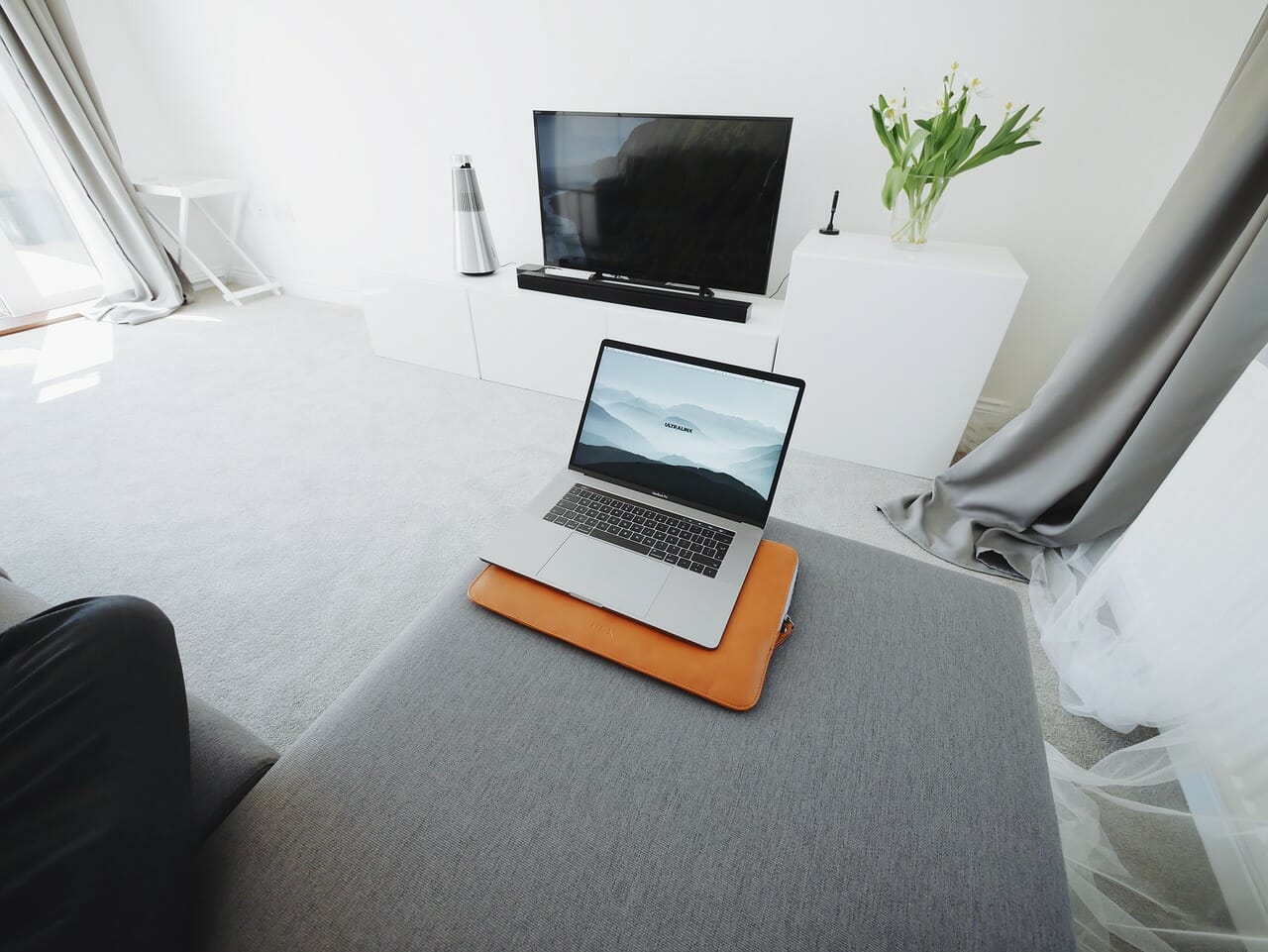
Screen Size
The size of the screen is a crucial factor to consider for most buyers.
TVs are available in various sizes from small to large, but customers are more attracted to large screens as they offer better visibility. A large screen also offers you a wide variety of viewing angles.
Most monitors are smaller in size compared to TVs (see Toshiba TVs). The smaller size of the monitors is convenient as they are used from a specific distance as you play your games. However, most PC gamers prefer large gaming monitors as they offer better visibility and a more lifelike gaming experience.
However, as you choose a gaming monitor or a TV, the screen size should only be one of the considerations. You should consider other factors such as screen resolution, aspect ratio, refresh rate, response time, and input lag.
The monitor's size will also determine how much it will cost you to buy the monitor or TV.
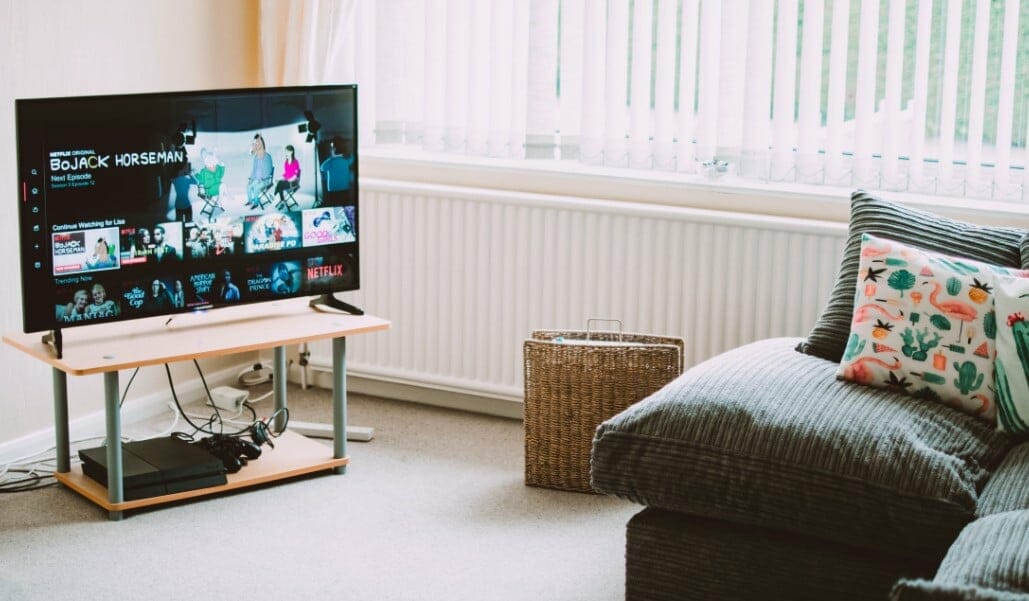
HDR (High Dynamic Range)
If you purchase a high-end 4K TV, it should also have an HDR (High Dynamic Range) feature that offers better and more vibrant images that offer a more lifelike experience.
The HDR feature also offers a wider contrast between the brightest whites and the deepest blacks in the display. The wider the contrast, the better the image quality, which takes your gaming to the next level.
With better contrast, you can see the enemy hiding in the dark corners and take appropriate action fast.
Connectivity and Features
At the most basic, a TV and a monitor work the same way: plug something into the back, and you'll see the image. One thing to consider is how that takes place.
Both monitors and TVs offer a selection of ports and connections for video sources. TVs usually provide more consumer device-friendly options, such as HDMI, while monitors generally have fewer and more computer-centric options.
Modern televisions, especially smart TVs, also provide something that monitors generally do not: the ability to show content without using an external source. This includes taking a signal from an aerial and using built-in tuners.
A smart TV also includes the brains of a set-top streaming box, accessing the Internet directly. For a living room, eliminating extra set-top boxes can be advantageous in reducing cables and clutter.
A monitor generally has to rely on an external source for video.
Monitor vs TV: Five Must-Know Facts
- The main difference between monitors and televisions lies in the screen types. TVs come in LCD, LED, OLED, and QLED, while monitors come in LCD, LED, and IPS.
- Monitors experience less input lag and a higher refresh rate than televisions.
- Generally speaking, televisions boast a 16:9 aspect ratio (widescreen), while monitors offer a range of aspect ratios.
- Though there are certainly exceptions to the rule, monitors typically cost more than televisions when it comes to a direct size per price point comparison.
- Televisions most often have a 60Hz refresh rate, while 120Hz is a popular option for gaming monitors, which often have up to a 360Hz refresh rate.
Conclusion
If you are into gaming, you probably want to have a giant monitor to enjoy gaming sessions. A large monitor also makes it effortless to multitask. However, as monitors increase in size, they also become more expensive. As such, it's not unusual for people to think of TVs (see LG TVs) as a cheaper alternative.
However, TVs (see Samsung TVs) may not be the best option for gaming as they have a lower refresh rate, lower or slower response time, and input lag. If you are looking for a display for gaming, a PC monitor is an excellent pick.
FAQs
1. Is it better to use a monitor or TV for gaming?
Yes, monitors are a far superior gaming option to televisions. This is because they have a faster response time than television. While faster response times are less critical when watching video, TV shows, or watching movies, they are essential when gaming.
2. Does a monitor make a difference for gaming?
The answer is yes. A good monitor can provide a better gaming experience by providing clearer image quality and faster response times. This means that you’ll be able to see enemies and objects more clearly, and you’ll be able to react to them faster. In addition, a good monitor can help reduce input lag, which can cause problems with gameplay.
If you’re looking for the best possible gaming experience, then you should consider investing in a good monitor. Not all monitors are created equal, so you’ll need to do your research to find the one that’s right for you.
3. Why do pro gamers use small monitors?
It is large enough to see details while remaining compact enough to fit easily into small rooms and desk and tablespaces. Additionally, 144Hz and 240Hz refresh rates and a fast response time are reasonably priced for a display of this size. While larger tv (see TVs by Sony), or monitors will be used for home rigs, a 24-inch display is sufficient for most competitive gaming.
4. Why is TV cheaper than monitor?
Frequently, consumers are unaware of the manufacturing cost. This means that TV manufacturers can easily set prices as high as the market will bear. Additionally, because TVs (see Sharp and Hisense TVs) are purchased in more significant quantities than monitors, it is easier to sell TVs at a profit than it is to sell monitors.
Also, if you want your TV to fit a tight budget and are a casual viewer, looking for more affordable options like TVs by Vizio, Hisence, or TCL TVs, will leave you even more better off.
5. Are gaming monitors worth it?
Is it worthwhile to invest in a high-refresh-rate screens? Indeed, there is little point in having the best gaming laptop or PC with powerful components unless you have a monitor (see also white monitors for gaming) with a high enough refresh rate to display those high frame rates. So purchase one for yourself as a treat!


